There’s no doubt that Barcelona is making a name for itself as the Mobile World Capital. And Spain has been making news at the forefront of certain healthcare, including standing as the example for the world in organ transplants and being home to performed the world’s first Google Glass surgery, performed by knee replacement prodigy Dr. Pedro Guillen. It only makes sense that Barcelona’s entrepreneurs combine the two fames toward becoming a world leader in mHealth.
Today Barcinno dives right in to talk about the the mHealth revolution and the fantastic mobile healthcare apps and tools brought to you by some of our favorite Barcelona startups. Know anymore rockstar Barcelona entrepreneurs with awesome mHealth apps? Don’t forget to comment below!
What is mHealth?
And what is the difference between mHealth and eHealth? Well mHealth is a part of eHealth. eHealth is all the technologies and communication that are provided related with healthcare service. mHealth, as its name suggest, refers to the mobile technologies that enable external parties to have access healthcare information and tools. It focuses on technology changing the paradigm to empower the patient with:
- better connected people
- better access to healthcare providers
- more responsible personalized healthcare
In short, mHealth and the apps, technology and creative entrepreneurs that empower it are focused on improving the citizen’s quality of life. Most healthcare systems work around the time a patient spends at a facility. mHealth focuses more on:
- treatment plans for chronic conditions
- monitoring
- education for prevention and better lifestyles
- improved patience adherence
And the possibilities are only limited by programmers’ and entrepreneurs’ creativity, as well as a few hundred pending government and hospital regulations.
According to Boi Ruiz i Garcia, conseller de salut of the Catalunya Generalitat, mHeath builds an environment of sustainability and savings that, if mHealth adoption is encouraged, could save the European Union €99 billion by 2017. At a recent Barcelona Loves Entrepreneurs event focused on the topic, Ruiz i Garcia broke that down to €76 billion in public savings and €23 billion in private. The public hospitals would profit from mHealth’s efficiency, as the private would benefit from using mHealth as a major point of differentiation.
Overall, mHealth reduces readmission rates by facilitating, monitoring and increasing compliance, which, of course, benefits patient, doctor and healthcare industry alike.
Now, let’s jump right in and talk about…
5 of the Most Innovative mHealth Startups in Barcelona
Psious: Smartphone-based Virtual Reality Therapy
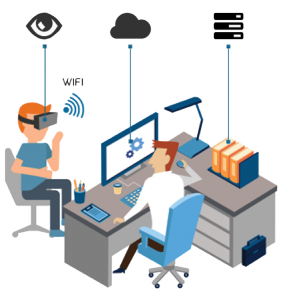
Psious uses 3D goggles and an Android app, doctors and therapists can help patients overcome fears like of flying or agoraphobia through virtual reality exercises.
SocialDiabetes APP: Diabetes Support To-Go
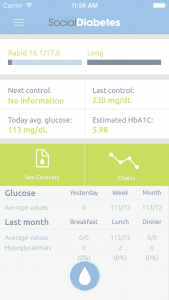
SocialDiabetes is a self-management system with immediate insulin adjustment. Folks with Diabetes Mellitus Type 1 can start their days by taking their blood sugar level, recording the numbers and what they just ate, and it determines just how much insulin is necessary, giving flexibility of what to eat.
Touchland: A Smart Hand Sanitizer
According to the TouchLand founder, the United Nations says that by 2026, two thirds of the world won’t have ample access to water. Eight percent of infections are transmitted via hands. Touchland is the first intelligent hand sanitizer enables sustainable hand sanitation sin aqua. With an Apple-like aesthetic and leak-free design, you can even refill it hands-free, after it notifies you when.
Starlab & Neuroelectrics: Brain Monitoring for Social Impact
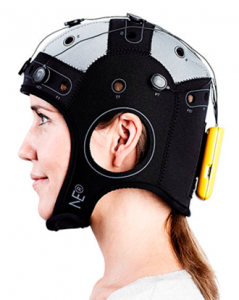
Ana Maiques and her husband have created this Barcelona company with the world in mind, already in 30 countries, Neuroelectrics uses their sexy cap to provide robotic therapy for stroke victims, neuro-gaming for U.S. veterans with post-traumatic stress disorder, map neuropatic pain, rehab for kids and so much more.
uClinic & uPatient: Prevention & monitoring every step of the way
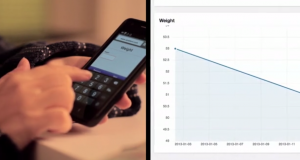
Under the umbrella of tech start-up Medtep, uClinic and uPatient looks to improve patient healthcare at any age, from infant vaccines to elderly blood pressure monitoring. Medtep unifies passive and active data so it can be presented in a meaningful way that both patients and doctors can comprehend. It is heavily focused on preventative care, continuum of care, and following medical protocols, all from your smartphone or tablet.
Moebio looks to accelerate Barcelona healthcare entrepreneurship
A part of BIOCat, Stanford University, La Caixa and Barcelona Activa have joined forces for a program called Moebio, focused on developing health entrepreneurs in Barcelona. Moebio starts first by identifying medical needs —1,400 unmet clinical needs identified already!—, then works with founders to create disruptive technology that looks to solve multiple needs, and then implementing a viable business model. From there, they have a Clinical Immersion Stage where these start-ups work with doctors, hospitals, pharma and others in the industry to test and prove the value of the technology before fully taking to market.
Moebio focuses first on team building, then problem identifying, and then finally solution developing, assuring there is a market for all the developed innovation. Fifty-three Barcelona mHealth and dHealth tech companies have already been designed because of this project and Barcinno is excited to learn about more.
Do you use any Barcelona-based awesome mHealth mobile apps or tools? Tell us about it below!

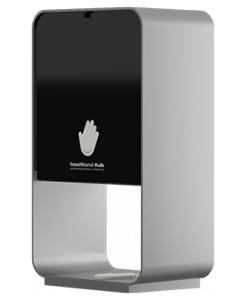
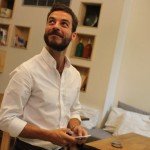

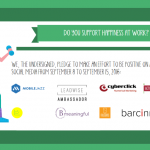


Leave a Reply